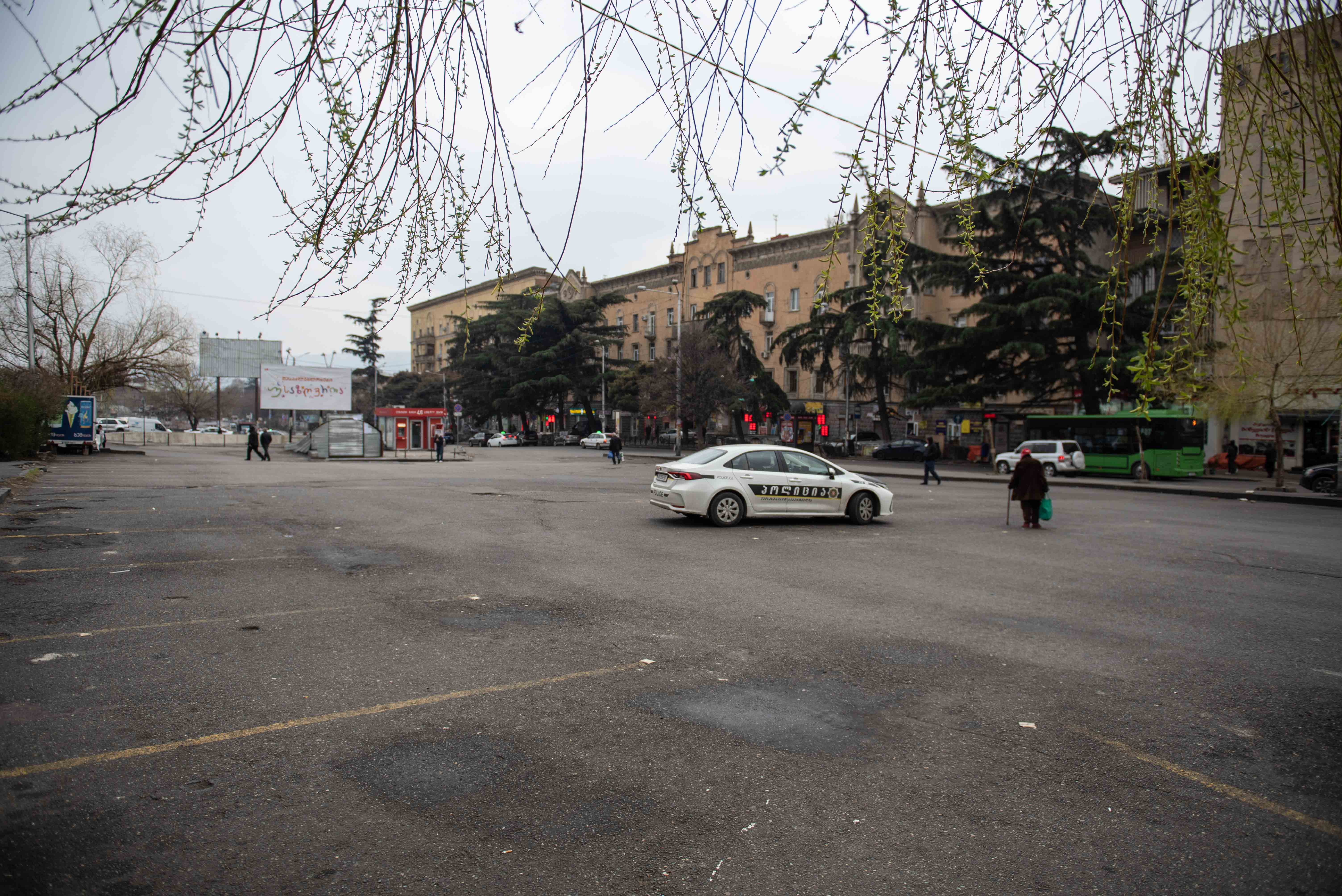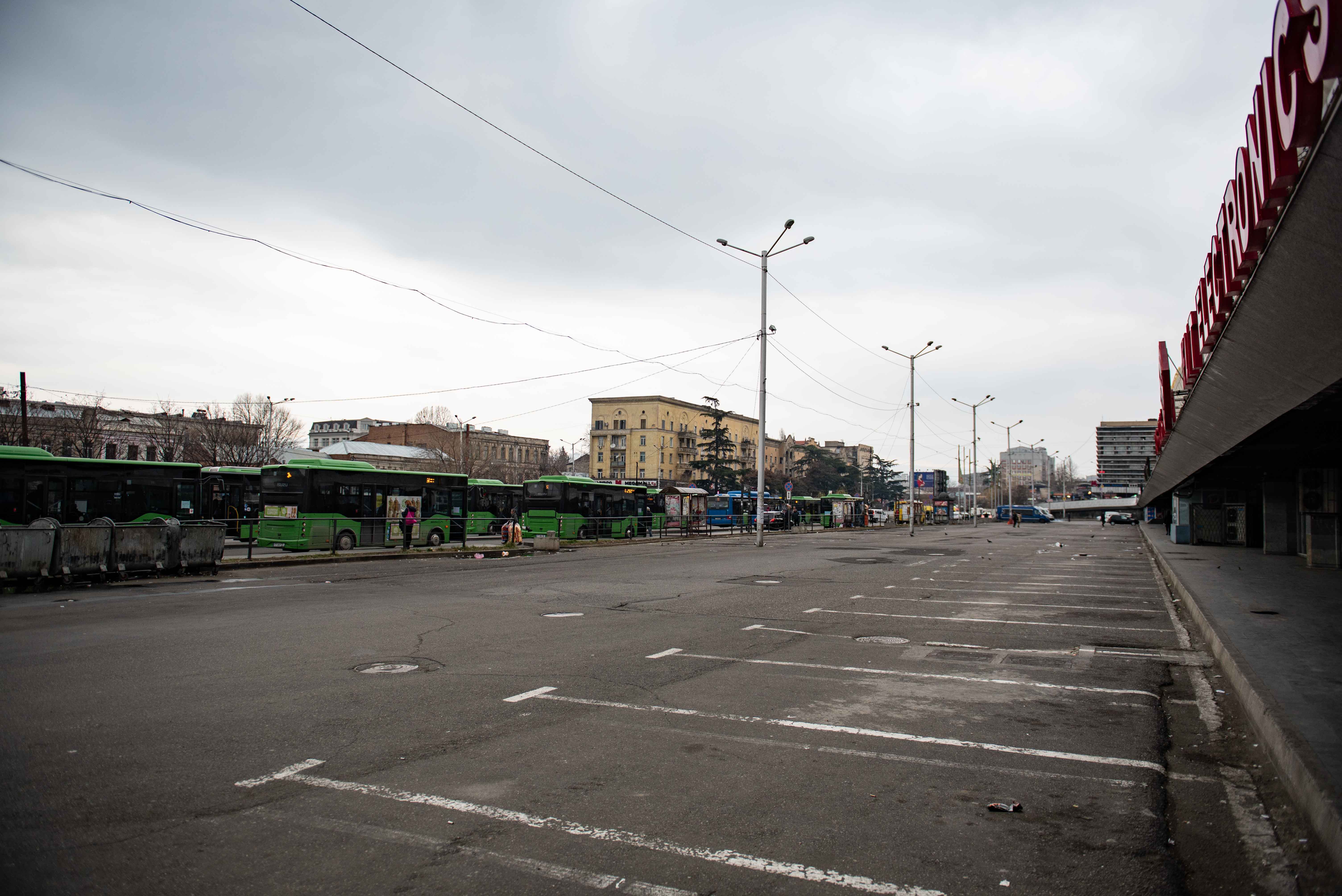
On 21 March, Georgia declared a month-long state of emergency to counter the spread of the coronavirus. The new restrictions on businesses and freedom of movement have left the streets of Tbilisi eerily empty.
The measures include banning gatherings of 10 or more people and closing all non-essential places of trade, including bars, restaurants, and shops.
[Follow our live updates on the coronavirus in the Caucasus.]
Shops that have been allowed to stay open, including grocery stores, pharmacies, and banks, are obliged to prevent more than 10 people from standing together in a closed environment.
All intercity public transport, including railway travel, has been halted; all flights except for emergency flights to evacuate people have been grounded.


















